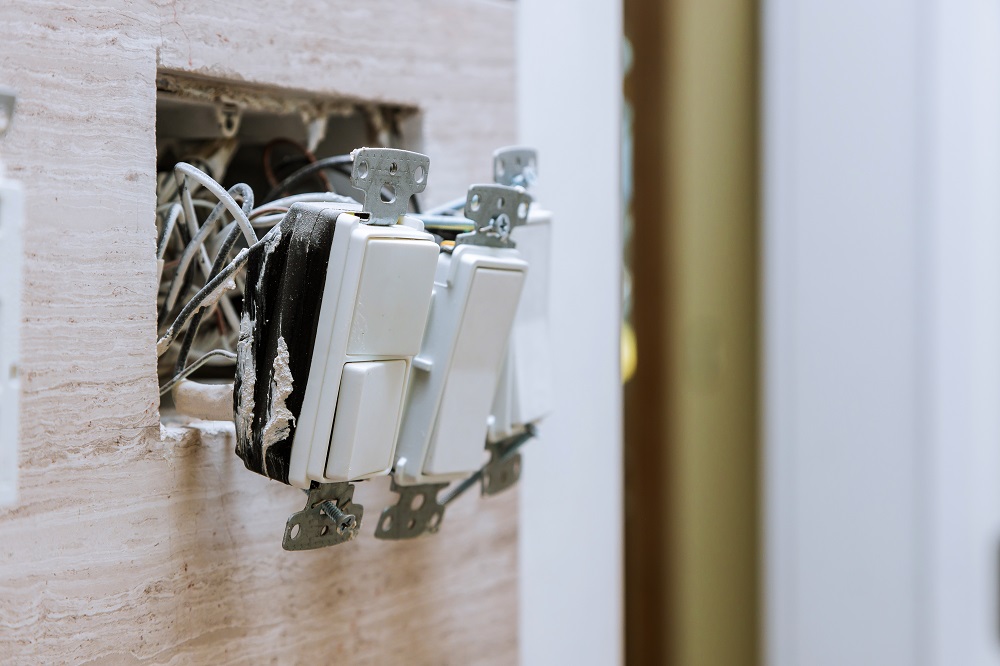When it comes to home improvement projects, wiring installation is a crucial yet often overlooked aspect. Proper wiring not only ensures that your home’s electrical systems function efficiently but also plays a significant role in your safety. Whether you’re upgrading your existing wiring, installing new outlets, or setting up a home solar system, understanding the basics of electrical wiring is essential. In this guide, we’ll walk you through expert tips to make wiring installation straightforward and safe.
Understanding Home Wiring Basics
Before diving into specific wiring tasks, it’s important to understand the fundamental concepts of home wiring. Proper installation ensures your home’s electrical system operates safely and effectively.
1. Know Your Wiring Types
Different types of wiring are used for various applications in home electrical systems:
- Romex Wire: This is a common type of non-metallic sheathed cable used in residential wiring. It typically contains two or three insulated wires and a bare ground wire.
- Copper Wire: Known for its excellent conductivity, copper wire is often used in electrical installations. It’s flexible and ideal for carrying electrical currents.
- Fiber Optic Cable: Used for high-speed data transmission, fiber optic cables are essential for modern communication systems but are not typically used for standard home wiring.
Keywords: home wiring, electric wire, romex wire, copper wire, fiber optic cable
2. Understand Electrical Outlets and Wiring
Electrical outlets are essential for powering your devices. Proper installation involves connecting wires to the outlets and ensuring they are securely mounted. Here’s a brief overview:
- Electrical Outlet Wiring: Involves connecting wires to the outlet terminals. Ensure you follow the correct color coding and connection procedures.
- Wiring an Outlet: The process of connecting the outlet to the home’s electrical system. This includes attaching wires to the outlet’s screws and ensuring a secure connection.
Keywords: electrical outlet wiring, wiring an outlet, install electrical outlet
3. Choose the Right Wire Connectors
Wire connectors are used to join wires together securely. They come in various types, including:
- Wire Connectors: Used to connect two or more wires. They come in various sizes and types, including twist-on and push-in connectors.
- Electrical Wire Connectors: These ensure that wires are connected safely and effectively, reducing the risk of electrical shorts or fires.
Keywords: wire connectors, electrical wire connectors
Expert Tips for Safe Wiring Installation
Whether you’re tackling a DIY project or preparing for a professional installation, these expert tips will help ensure your wiring is done correctly and safely.
1. Plan Your Wiring Layout
Before starting, plan the layout of your wiring. Consider the following:
- Circuit Breaker Replacement: If you’re updating your electrical system, you may need to replace or upgrade your circuit breakers to handle increased loads.
- Electric Panel Upgrade: Upgrading your electric panel ensures it can accommodate additional circuits or higher power demands.
Keywords: circuit breaker replacement, electric panel upgrade
2. Follow Safety Protocols
Safety is paramount when working with electricity. Here’s how to ensure a safe wiring installation:
- Turn Off Power: Always turn off the power at the circuit breaker before starting any electrical work.
- Use Proper Tools: Use insulated tools and wear protective gear to avoid electrical shocks.
- Verify Connections: Double-check all wire connections to ensure they are secure and correctly installed.
Keywords: licensed and insured electrical company, best local electrician
3. Consider Professional Help
While DIY wiring projects can be rewarding, some tasks are best left to professionals:
- Electrical Troubleshooting: If you’re experiencing issues with your electrical system, a licensed electrician can diagnose and fix the problem efficiently.
- Inspections & Wiring: Regular inspections by a professional can help identify potential issues before they become serious problems.
Keywords: electrical troubleshooting, inspections & wiring, inspections & wiring san ramon
4. Optimize Your Electrical System
Consider enhancing your electrical system with modern upgrades:
- Attic Fan Installation: Helps in regulating home temperature and reducing cooling costs.
- Ceiling Fan Installation: Improves air circulation and comfort.
- Home Solar System: Reduces energy bills and supports environmental sustainability.
- Electrical Vehicle Charging Station: For electric car owners, a dedicated charging station is essential.
Keywords: attic fan installation, ceiling fan installation, home solar system, electrical vehicle charging station
5. Manage Lighting and Power
Effective management of lighting and power can enhance the functionality of your home:
- Recessed Can Lighting: Provides a sleek and modern lighting solution that is ideal for various spaces.
- Low Voltage Wiring: Used for low voltage applications like landscape lighting and doorbells.
Keywords: recessed can lighting, low voltage wiring
Frequently Asked Questions (FAQ)
Q: What is Romex wire, and why is it commonly used?
A: Romex wire is a type of non-metallic sheathed cable that is widely used in residential wiring. It contains insulated wires and a ground wire, making it suitable for general home wiring applications.
Q: How do I know if I need an electric panel upgrade?
A: If you’re adding new circuits, appliances, or experiencing frequent breaker trips, an electric panel upgrade may be necessary to handle increased power demands.
Q: Can I install a ceiling fan myself?
A: Yes, if you have basic electrical knowledge and tools. However, for safety and to ensure proper installation, consider hiring a professional electrician.
Q: What are the benefits of installing a home solar system?
A: A home solar system can reduce your energy bills, provide a sustainable energy source, and increase the value of your home.
Q: How often should I have my electrical system inspected?
A: It’s recommended to have your electrical system inspected every 3-5 years or whenever you notice issues like flickering lights or frequent breaker trips.
Q: What should I do if I experience electrical troubleshooting issues?
A: For any electrical issues, consult a licensed electrician to diagnose and repair the problem safely.


